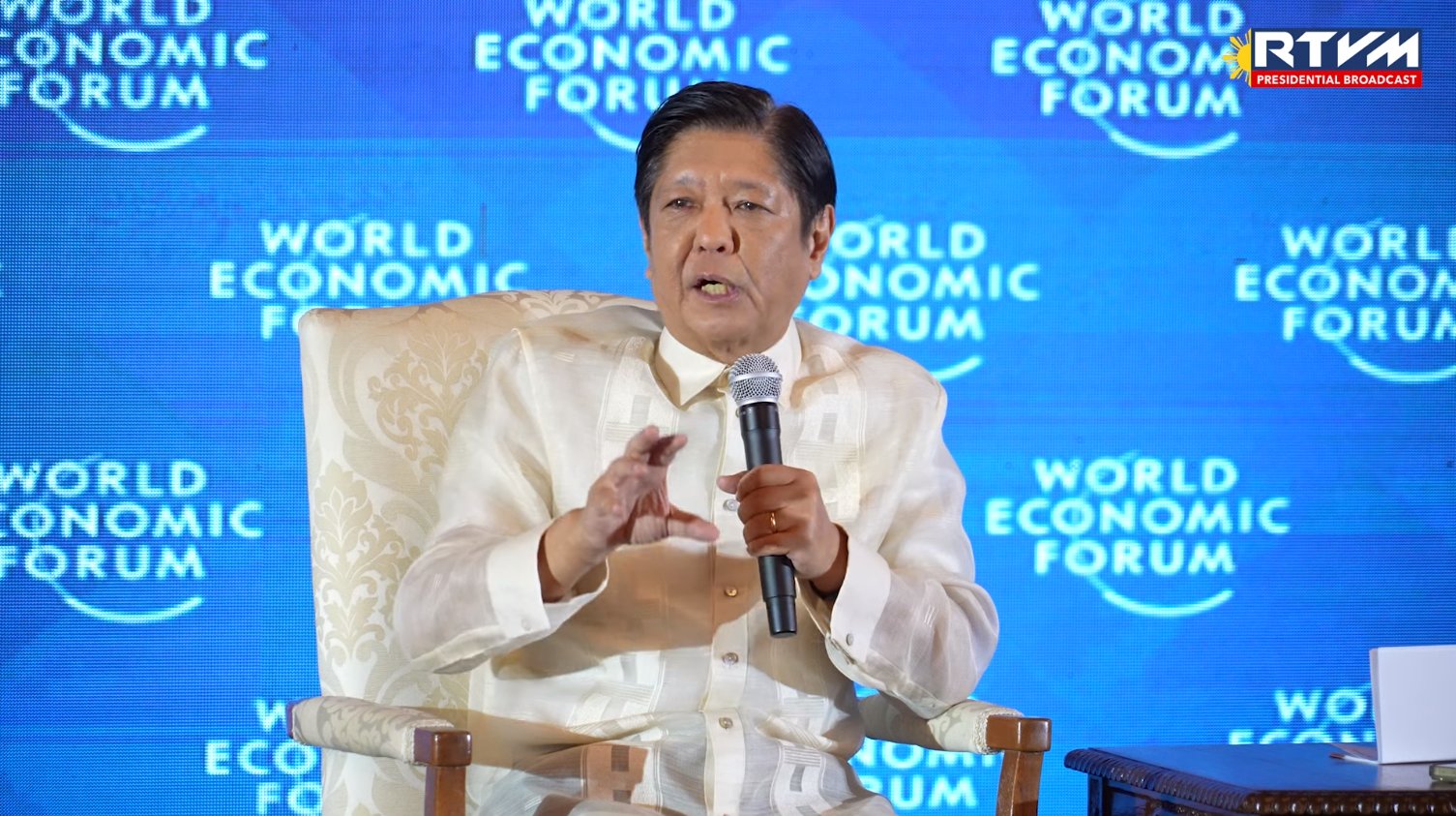'Philippines must be part of AI evolution' — Marcos
At A Glance
- In November last year, President Marcos highlighted that the Philippines was ready to embrace AI and invited American tech companies and venture capitalists to partner with the country in its technological revolution.
While admitting that the Philippines is still getting the hang of artificial intelligence (AI), President Marcos said that the country must not be left behind in the said technological evolution.

Marcos said this as he graced the World Economic Forum (WEF) Country Roundtable in Malacañan on Tuesday, March 19.
In an interview with WEF President Børge Brende, the President said the Philippines is aware of AI's potential and that the government could take advantage of it as it implements reforms.
"We're still trying to figure out. We know how powerful it is and we know how powerful it is going to be even more so than it is now," he said.
"We can see the necessity for AI because what we're doing is becoming more complicated and we have to act very swiftly to be able to adjust to whatever occurrences there are," he added.
While noting its possible downside, Marcos said the Philippines cannot afford to miss on AI's evolution.
"I need not explain how the AI can also work against you. But it is a very clear understanding, on our part, that we must be part of that," he said.
While in San Francisco in November last year, President Marcos highlighted that the Philippines was ready to embrace AI and invited American tech companies and venture capitalists to partner with the country in its technological revolution.
"The Philippines is ready to become your partner in navigating the AI future," he said.
"As we look to the horizon, let's 'Make It Happen in the Philippines,' where the promise of a future defined by technological inclusivity and shared growth is not just envisioned but actively realized," he added.
According to Marcos, the Philippines was embracing the AI revolution to augment the existing skills of the Filipinos, increase the productivity of enterprises, and enhance the economy's competitiveness.
"We believe AI can uplift the lives of Filipinos. I'm certain our discussions here today will help the Philippines steer our roadmaps in a direction that maximizes the skills of Filipinos and helps them achieve their aspirations," he added.
In his meeting with Silicon Valley investors in November last year, President Marcos said that the government is looking at AI technology and increasing capability in terms of knowledge and know-how.
Marcos said the government and private sector are vulnerable to cybersecurity threats, pointing out the need for capability improvements.
In August last year, President Marcos admitted that while AI is "disconcerting," the government must deal with it since it is deemed helpful in modern times.
"With the advent of AI, we can see that the tools that are available are becoming more and more powerful and we're all very grateful when there are machines do a little bit of thinking for us but it's also rather disconcerting when we are confronted by pure AI, hindi na tao yung kausap mo (you're no longer talking to a human)," he said.
"That's something that we have to learn how to deal with," he added.